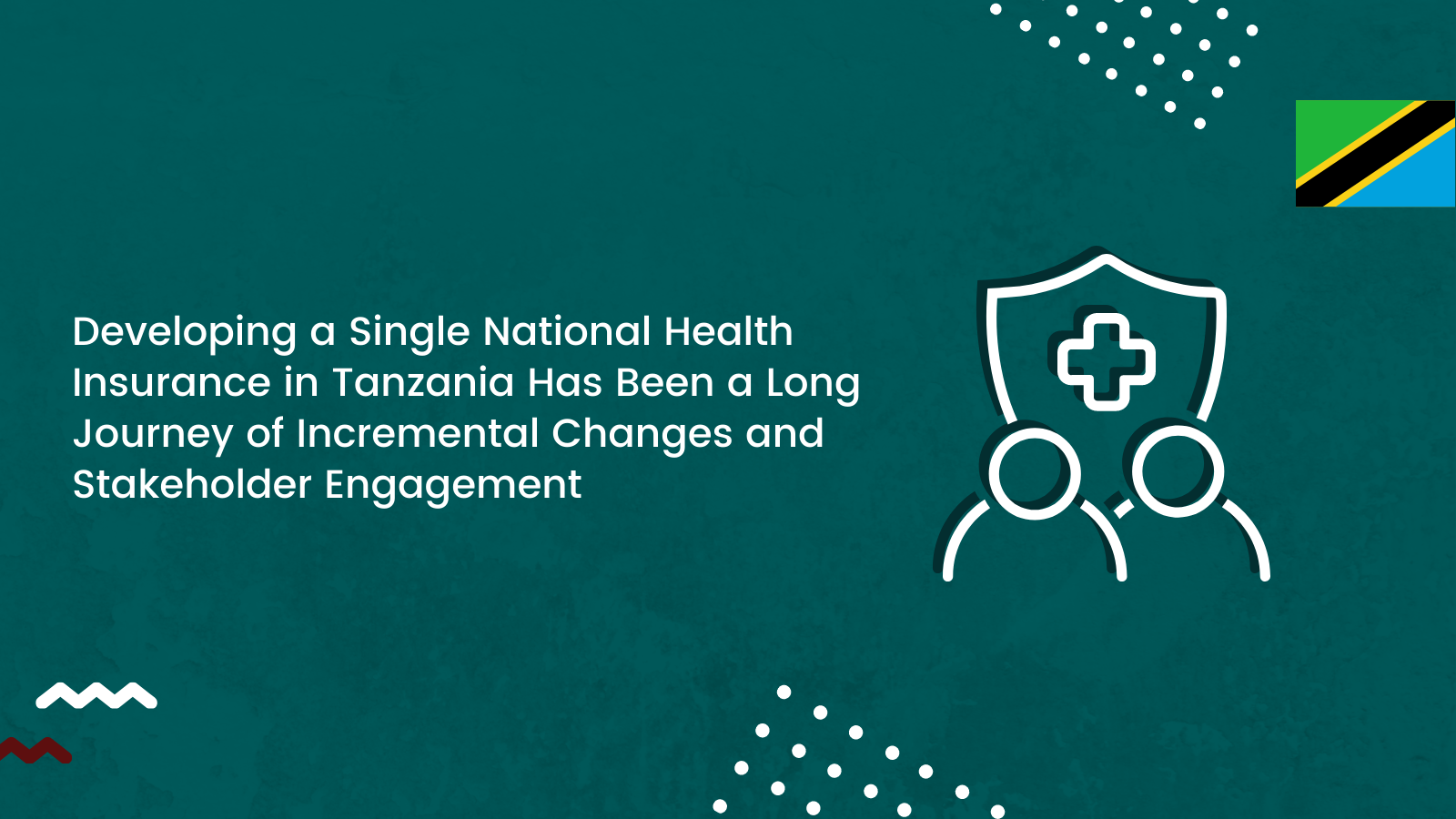Introduction
The Tanzanian Government has a goal to provide equitable access to a standard Minimum Benefit Package (MBP) for every citizen through a new Single National Health Insurance (SNHI). To actualize this goal, the government needs to develop the National Health Insurance Infrastructure defined in a Health Financing Strategy and enacted through a National Health Insurance Act. However, these two key elements have not been finalized because of lengthy consultations and multiple stakeholder reviews. Despite delays, the government has proceeded to undertake key health purchasing reforms and develop the framework required to support the transition to SNHI.
Incremental changes to improve strategic purchasing
Direct Health Facility Financing (DHFF) aims to improve health services through improving the flow of resources to health facilities and achieving fiscal decentralization. DHFF reduced fragmentation, by merging multiple resource flows from government and donors into one basket that is transferred to health facilities using an output-based payment system. These changes were geared to enhance efficiency by reducing fragmentation and conflicting financial incentives. DHFF realigned roles and relationships, increased provider autonomy, transparency and accountability – essential for the success of SNHI. DHFF enhanced facility management by enabling facilities to better participate in planning, budgeting, procurement, accounting, and reporting of expenditures. There is ongoing dialogue and technical coordination to harmonize payment systems for DHFF, budgets for facilities’ recurrent costs and the improved Community Health Fund (iCHF) to output-based payment to avoid conflicting incentives to providers.
The National Health Insurance Fund (NHIF) – the current public health insurer is working towards better articulating and specifying their institutional roles and relationships in relation to DHFF and SNHI. To better position itself, NHIF has undertaken various measures to improve provider payment including introducing capitation, shifting from fee-for-service to formula-based budget-neutral payments for hospital and outpatient specialty services, and establishing relative payment weights for hospital case-based payments. This is in addition to other reforms to improve and harmonize information and claims management systems. These changes are important building blocks in developing the SNHI infrastructure.
The Policy Dialogue continues…
The process of developing a SNHI has been iterative, requiring extensive stakeholder consultation. Significant progress has been made including stakeholder consensus on a single pool rather than multiple pools; and agreeing on additional revenue from general taxation to increase over time, to supplement contributions and for SNHI to be sustainable. However, challenges remain in reaching consensus on how existing pools such as the Workers Compensation Fund (WCF), NHIF and iCHF will be treated. Although a merger would be ideal, there is resistance from stakeholder groups due to differences in benefit packages, contributions, access to health providers, among others that would need to be harmonized. In conclusion, it is expected that the final policy decisions will be made after an actuarial study considering the merger of current schemes and additional stakeholder consultations that will lead to formulation of the National Health Insurance Act. Even though the SNHI policy dialogue has been lengthy, it has raised awareness and has enhanced stakeholder ownership. Furthermore, implementation of key reforms such as DHFF, output-based payment, and strengthened public financial management at primary health care facilities has offered a solid foundation for SNHI once it is introduced. No one knows what the future holds, but for now, Tanzania is laying the groundwork to increase their chances of success and to reach the goal of equitable access for every citizen to a standard Minimum Benefit Package through Single National Health Insurance.

